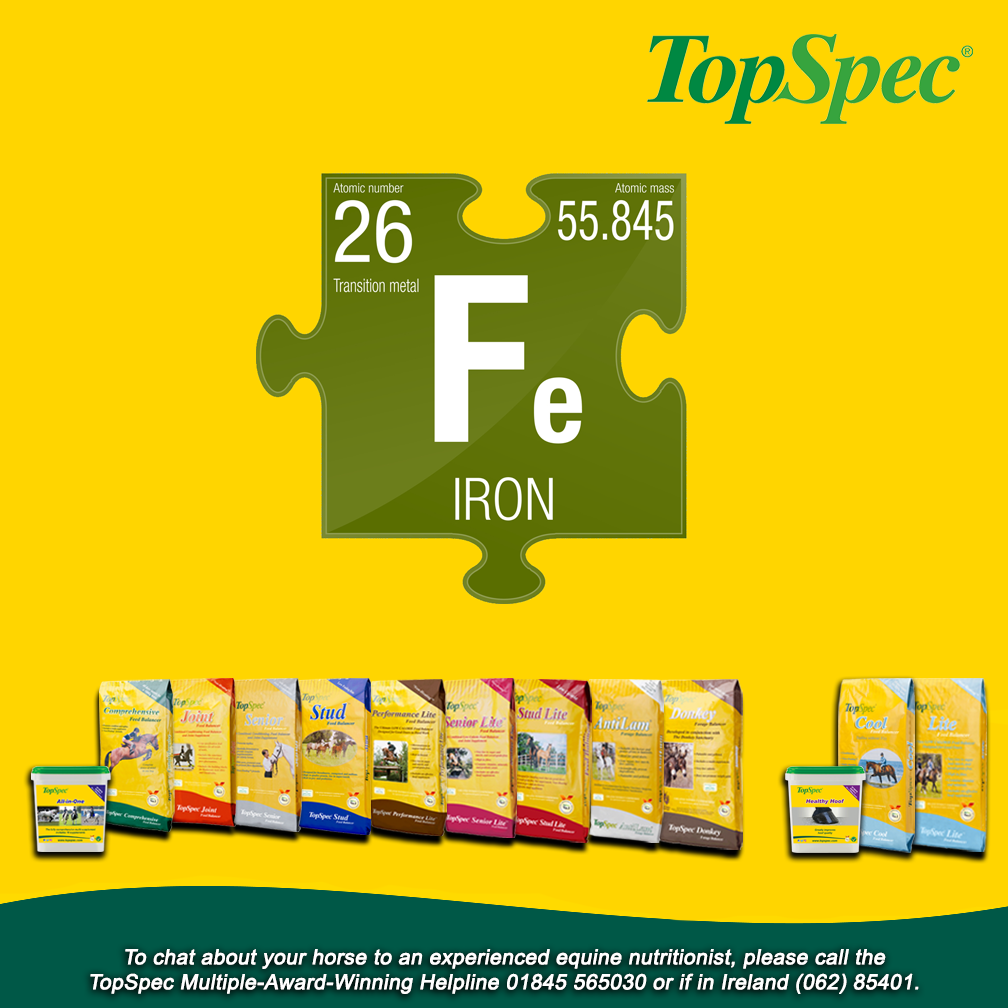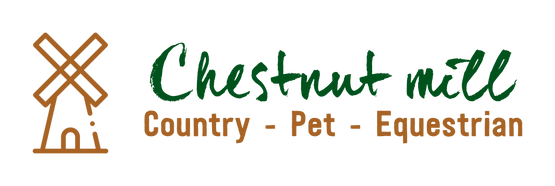From £6.99

The Role of Iron in a Horses Diet - Horse Supplements
The primary function of iron is as a component of haemoglobin, which is vital for the transport of oxygen from the lungs to the tissues. It is also a component of other proteins e.g. myoglobin, which transports oxygen in muscle tissue. Iron also supports anti-oxidant function and is involved in energy metabolism and the immune system.
The horse utilises and recycles iron efficiently, and anaemia due to iron deficiency is exceedingly rare in the horse.
The main source of iron for horses is through the forage they eat; however the levels vary between ample and more than ample and may even be too high. Occasionally water may contain excess levels of iron. Conversely, mare’s milk only contains low levels of iron and iron must not be fed to foals during their first few days of life as it may have fatal consequences.
Requirements increase with workload and perhaps the strongest case for supplementation can be made with racehorses, when workload is heavy and forage restricted (but again, enlightened trainers are moving towards only restricting forage intake during the three days before racing).
Evidence of dietary deficiency in the UK does not exist. Unfortunately, humans still (albeit less than in the past) think of the horse as a human and add iron to the diet in the mistaken belief that it will prevent anaemia. This iron is often added in the form of a supplement, in addition to that provided by the total diet.
Toxicity may be caused by using e.g. supplements including added iron on top of a balanced diet or by grazing flood plains. When horses are grazed in fields that have been exposed to flood water, as has occurred frequently this winter, high iron levels in the deposited silt, and therefore the grass growing in it, can cause iron to accumulate in, and cause severe damage to, the horse’s liver, as it cannot be excreted.
If your vet or nutritionist advises that your horse requires a hard feed with no added iron then TopSpec produce TopSpec Cool Feed Balancer, TopSpec Lite Feed Balancer and TopSpec Healthy Hoof supplement to provide suitable support in most situations.

